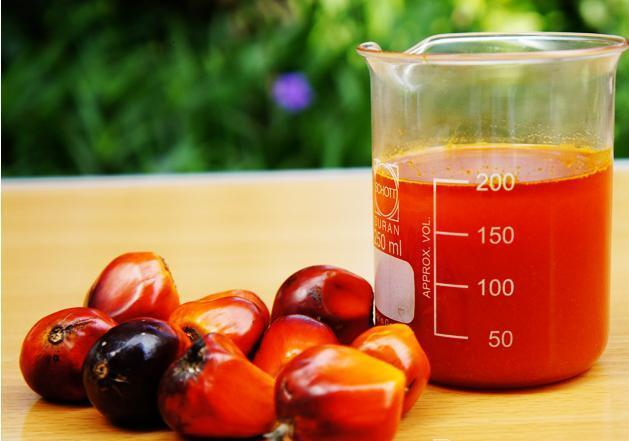
The President of the Oil Palm Development Association of Ghana (OPDAG), Mr Samuel Avaala, has made a passionate call for the local oil palm industry to be protected.
He said local producers have more than sufficient capacity to refine and bottling crude palm oil to meet local demand.
Mr Avaala, therefore, kicked against the continued importation of finished vegetable oil into the country especially when the imports come in through unapproved routes.
The illicit importation of vegetable oil he said robs the government of tax revenues.
Speaking on behalf of local producers, Mr Avaala stated, “We have more than sufficient capacity to refine and bottle, package locally-produced vegetable oil for consumption and in so doing contribute to the sustenance and economic viability of smallholder farmers in particular and the entire value chain in general.”
He added that the impact of a vibrant local oil palm value chain on the economy is huge and must be harnessed through rigorous enforcement of tax laws and a proactive approach to curbing illegal imports in the immediate term.
He called for the immediate passage of the Oil Palm Development Authority Bill which will help in regulating the industry and, in the medium to long-term, promote the growth of the production of sufficient palm fruits.
This, he said, will make the country not only self-sufficient but also a net exporter of palm oil products into the sub-region.
He said investigations have revealed that an average of about 6,000 tonnes of finished edible oil are imported every month into the country which sells at unbelievably low.
This he said Ghana loses close to $3 million a month in illicit importation of vegetable oil through under-declaration, under-invoicing, mis-declaration, smuggling, removal in-bond, removal in transit and corruption at entry points.
This development, he observed, is very disturbing and anti-Ghanaian “because the continuous importation of edible oil will adversely impact the annual financial contributions local producers make to the state.”.
Mr. Avaala stressed that the country’s Palm Oil industry has the capacity to meet the local demand explaining that the existing crude palm refineries in Ghana have a combined capacity of approximately 615,000 million tonnes per annum against a 300,000 per annum demand.
“A clear indication that the local manufacturing companies has even twice the ability to cater for local demand and also some ECOWAS markets through exports. This can contribute to the foreign exchange earnings of the country,” he said.
He, therefore, called on Government, policy makers and the enforcement agencies to as a matter of urgency take the necessary steps to stop the menace of illicit importation of vegetable cooking oil into Ghana.
Adding his voice, Mr. Maxwell Commey, the Public Relation Officer of OPDAG observed even more alarming is the fact that the quality of imported finished oil is questionable since the unapproved routes they pass through means regulatory authorities such as the Food and drugs Authority (FDA) and the Standards Board will not have access to do their checks to ascertain whether the oil is good for consumption.
“We appeal to key stakeholders including: Ministry of Finance, Ministry of Trade & Industry and Ministry Food & Agriculture, the General Agricultural Workers Union (GAWU) and the Association of Ghana Industries (AGI) to do every legitimate thing within their respective mandates not only to save the local palm oil industry/value chain but more importantly to create the enabling environment for it to grow and to prosper," he said.
The Oil Palm Development Association of Ghana is a business registered under the laws of Ghana and formed under the umbrella of oil palm farmers, millers, refiners and end users.